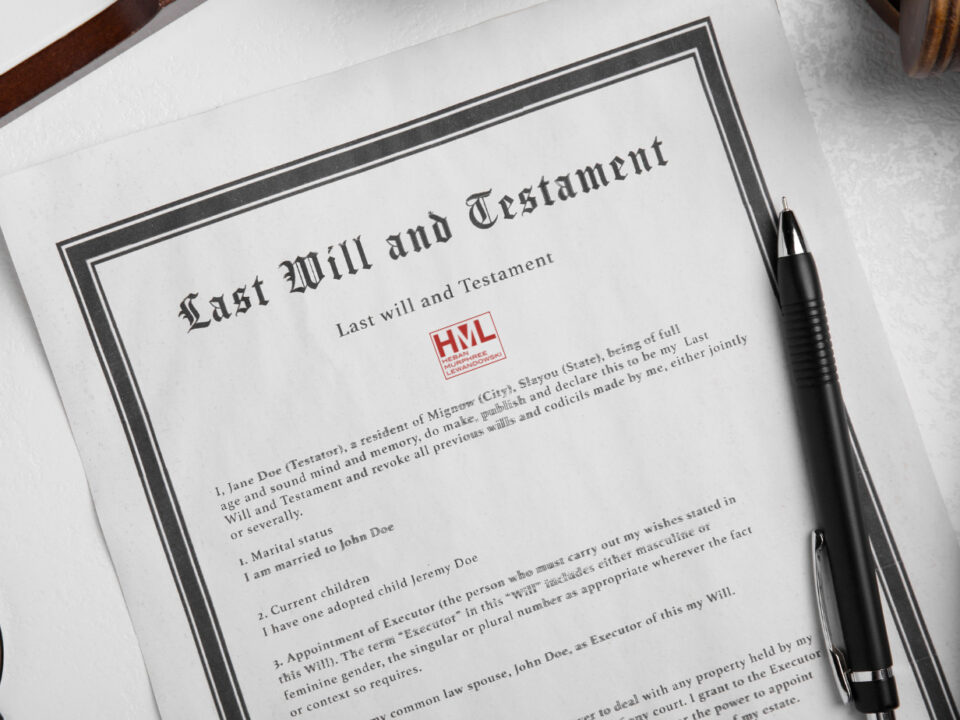- EXPERIENCED LAW FIRM IN TOLEDO, OH
- (419) 662-3100
Siblings Disagree on Selling an Inherited House?

Can I Contest a Will in Ohio If It Has a No-Contest Clause?
September 11, 2025
Avoiding Lease Renewal Traps Under Ohio Law
October 15, 2025When Family Fights Over Inherited Property
Inheriting property can be challenging for families. What starts as a shared gift, like a family home, lake cabin, or farmland, can become a source of tension when co-owners disagree about next steps.
People may want to sell or keep their items, and some might stop responding. While tough, open communication and understanding can help find a solution for everyone.
When polite negotiations fail, Ohio law offers a way forward, called a partition action, and it allows any co-owner to ask the court to divide or sell jointly owned property so everyone can move on fairly.
The Right to Partition
Under Ohio Revised Code 5307.01, any co-owner, no matter how small their share, has a statutory right to demand partition. That means if you and your siblings inherit real estate together, and even one of you refuses to cooperate, another can file a lawsuit in the Court of Common Pleas in the county where the property sits.
Once the petition is filed, all co-owners are officially notified. The court then confirms ownership, reviews any disputes over the title, and decides how to divide the property.
In principle, the law favors a fair physical division, literally splitting the land into separate parts, but in most modern cases (like a single-family home), that’s not practical.
When You Can’t Slice a House in Half
If the property can’t be physically divided without hurting its value, the court appoints one or more commissioners, neutral professionals who inspect and appraise the property. These commissioners determine whether division makes sense or whether the home must be sold.
When division isn’t possible, the commissioners set an appraised value, and Ohio law offers co-owners a choice: one party can buy out the others at that value, with court-approved payment terms (usually one-third down and the balance over two years, with interest). If nobody elects to buy, the court orders a public sale, often through the sheriff or a licensed auctioneer, at no less than two-thirds of the appraised amount.
This structure ensures that the process stays transparent and that nobody can hold the property hostage indefinitely.
How the Proceeds Get Divided
The end of a partition action isn’t just about selling and splitting cash. The court also conducts what’s known as an accounting, which adjusts each sibling’s share based on what they’ve contributed or withdrawn from the property.
Expenses like taxes, insurance, or maintenance paid by one sibling can be credited back. Benefits from rent collection or exclusive use can offset others’ shares. The aim is to ensure the final distribution fairly reflects each person’s actual financial contributions, not just a percentage on paper.
Even attorneys’ fees and court costs are divided according to fairness, not automatically split three ways. The judge can allocate them from the sale proceeds to whichever side acted reasonably in protecting everyone’s interests.
Why Partition Cases Get So Emotional
Partition actions are often less about property and more about family dynamics. A home represents memories, not just money. One sibling may have emotional ties to the family house, while another sees only its market value. Others may resent feeling “forced out” by a brother or sister.
This underscores the importance of early communication and legal guidance. A probate and real estate attorney can help reduce tension before disputes turn litigious.
Avoiding Litigation Before It Starts
Most family property disputes can be resolved long before a lawsuit. With clear communication and structure, you can keep control of the outcome instead of letting the court decide.
- Get an appraisal. A neutral appraiser provides a common starting point, turning emotional debates into practical discussions.
- Offer a fair buyout. Follow Ohio’s model—one-third down and the balance over two years with interest—to make a realistic offer before filing.
- Put it in writing. If you plan to co-own temporarily, create a short agreement covering management, expenses, and what happens if someone wants out.
- Stay calm and objective. Inheritance issues mix memories with money. A mediator or attorney can keep the conversation focused and productive.
What to Expect Once You File
Filing a partition complaint starts the legal process. The court verifies ownership, appoints commissioners to appraise the property, and holds a hearing after receiving the appraisal report. If a co-owner wants to buy the property at the appraised value, the judge sets payment terms and oversees the transfer.
If no purchase occurs, the sheriff conducts a sale at auction or via a licensed broker. After finalization, the court approves the sale, issues a deed to the buyer, and distributes proceeds to co-owners after deducting costs, credits, and liens.
Most partition actions settle quickly, even if they seem complicated. Filing encourages co-owners to negotiate seriously, as they know that if no agreement is reached, the property will be sold under court supervision.
When to Call a Lawyer
Partition is a powerful tool, but it’s also highly technical. Mistakes in the filing, notice, or accounting process can delay resolution or result in an unfair division. An experienced attorney can:
- File the proper petition in the right county.
- Protect your financial interest during appraisal or sale.
- Negotiate fair credits for expenses you’ve paid.
- Make sure you receive your rightful share of proceeds.
Turning Conflict Into Closure
No family wants to go to court over an inheritance, but sometimes it’s the only way to ensure fairness. Ohio’s partition laws are specifically designed for situations where property disputes outlast family harmony.
Knowing your rights and acting early can turn deadlock into closure and financial clarity. Whether keeping, selling, or dividing the property, the goal is to free everyone from conflict and preserve its value.
If you’re facing a property dispute with siblings or other heirs, don’t wait for frustration to become litigation. Contact to an experienced probate attorney in Ohio. Give us a call! (419) 662-3100









